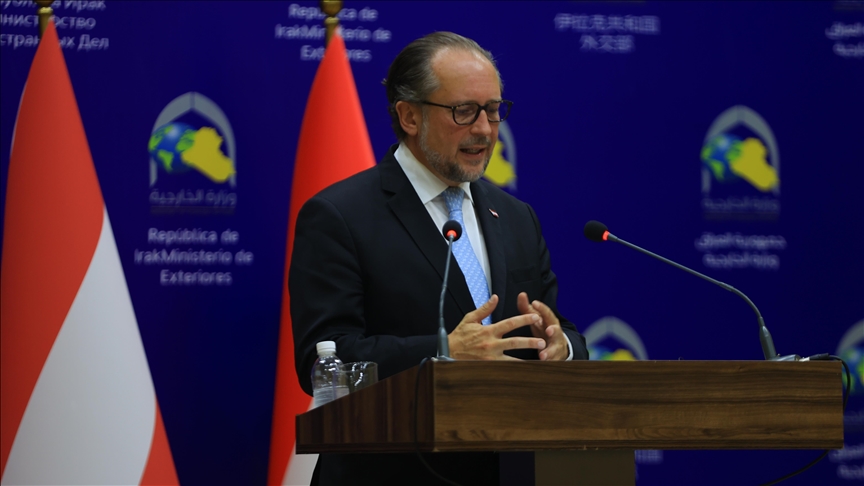GENEVA
Vienna hopes to bring EU hopefuls Serbia, Montenegro, North Macedonia, Albania, Bosnia-Herzegovina, and Kosovo closer into the bloc’s foreign policy fold, the Austrian Foreign Ministry said on Monday.
According to a ministry statement, this initiative is also supported by the Friends of the Western Balkans group, including current EU members Croatia, the Czech Republic, Greece, Italy, Slovakia, and Slovenia.
Austrian Foreign Minister Alexander Schallenberg, from the conservative ruling party OVP, founded the group this June in order to “finally push ahead with the enlargement process for southeastern Europe,” in his words.
Among other things, the Austrian non-paper calls for the regular participation of Western Balkan partners in EU Foreign Affairs Councils at least once every six months. The paper is also intended to serve as input for the EU-Western Balkans ministerial meeting on Monday evening in Brussels.
“As the region is exposed to destabilizing factors such as the malign influence of third parties, hybrid threats, disinformation and illegal migration, this agenda should also provide new impetus to deepen cooperation in the area of the (EU) Common Foreign and Security Policy and establish a more regular and structured exchange with our partners in accordance with established EU procedures and policies,” the paper states.
Pushing back on Moscow’s influence in the region, the ministry added: “Increased cooperation would enable us to counter external pressure and Russian and other harmful narratives in the region that are incompatible with the values of the EU and a rules-based international order.”
The paper also calls for the participation of the Western Balkan states in informal EU ambassadorial meetings, more coordinated visits to the region, and a common language towards third countries.
In addition, it said, regular workshops with experts on human rights issues should be held to complement the implementation of the justice chapters in the EU accession negotiations.
Other proposals include the training of young diplomats in the countries involved and increased cooperation on cybersecurity issues.

